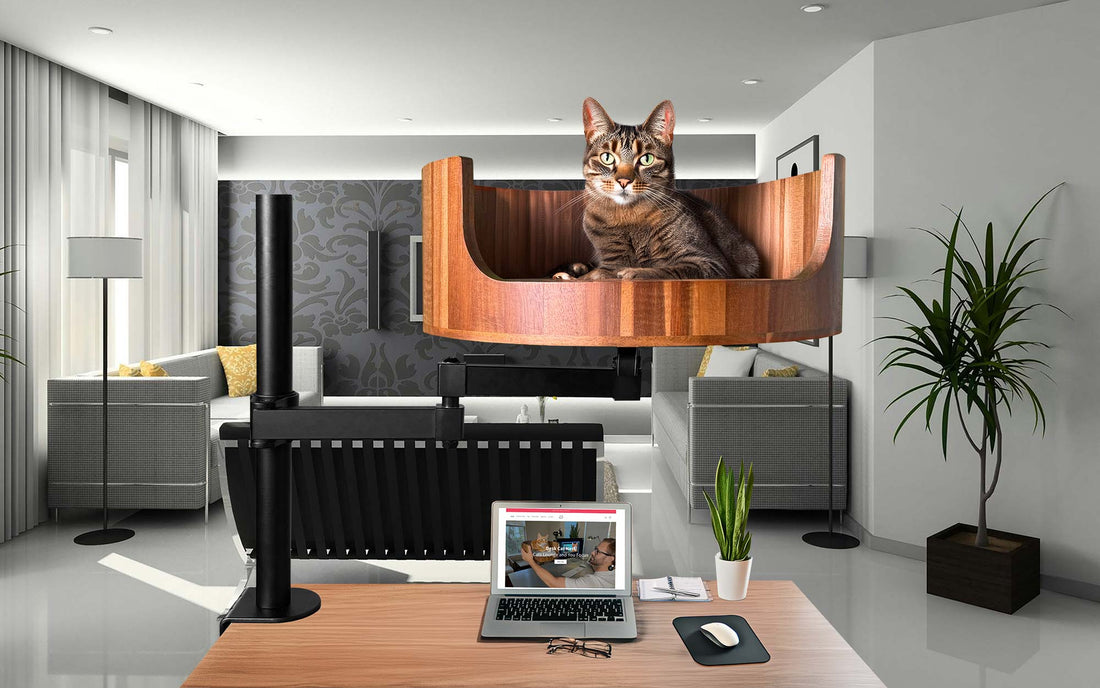
Why Does My Cat Yell at Night? Understanding Feline Behavior
Share
Do you find yourself waking up to the sound of your cat’s loud yowling in the middle of the night? If so, you’re not alone. Many cat owners experience this behavior, and it can be quite disruptive to both your sleep and your cat’s well-being. In this article, we will explore the reasons behind why your feline friend may be yelling at night and offer insights into understanding your cat’s behavior better.
One common reason your cat may be yelling at night is due to boredom or lack of stimulation during the day. Cats are highly active creatures and need mental and physical stimulation to keep them occupied. If your cat is not getting enough playtime or interaction during the day, they may act out at night when they have pent-up energy. Additionally, your cat’s night-time yelling could be a sign of a medical issue, such as arthritis or cognitive decline, that is causing discomfort or confusion. By understanding the factors that contribute to this behavior, you can better address your cat’s needs and improve both of your quality of life.
1. Cats may yell at night due to instincts such as hunting behavior and communication with other cats.
2. Changes in routine, lack of mental or physical stimulation, or health issues could also contribute to nighttime vocalization.
3. To address excessive meowing, ensure your cat has enough playtime, a comfortable sleeping area, and regular veterinary check-ups.
4. Providing interactive toys, establishing a bedtime routine, and utilizing calming pheromones or music may help reduce nighttime meowing.
5. Understanding your cat's individual needs and behaviors is essential in finding effective solutions to nighttime yelling.
The Science Behind Cat Behavior
Understanding why cats meow at night requires an exploration into feline behavior. Cats are natural hunters with nocturnal instincts, which means they are most active during the night. It is their way of mimicking their hunting patterns in the wild. Additionally, cats may meow at night to communicate with their owners, express their needs, or seek attention. Understanding these underlying reasons can help pet owners address their cat's excessive meowing.
Possible Medical Reasons for Nighttime Meowing
While it is natural for cats to be more active at night, excessive meowing could also be a sign of an underlying medical issue. Cats may meow at night due to physical discomfort, such as pain, illness, or cognitive decline. It is essential for pet owners to consult a veterinarian to rule out any medical conditions that may be causing their cat to meow excessively at night.
Environmental Factors that Influence Cat Behavior
Various environmental factors can contribute to a cat's nighttime meowing. Changes in routine, new additions to the household, or lack of mental or physical stimulation can all impact a cat's behavior. Providing a stimulating environment, incorporating playtime, and maintaining a consistent routine can help reduce nighttime meowing in cats. Understanding how these environmental factors influence feline behavior is crucial for cat owners looking to address their pet's nighttime vocalizations.
Behavioral Strategies to Address Nighttime Meowing
There are several behavioral strategies that cat owners can implement to address their cat's nighttime meowing. Providing ample playtime during the day, ensuring a comfortable sleeping environment, and establishing a bedtime routine can all help regulate a cat's nocturnal behavior. Additionally, rewarding quiet behavior and ignoring excessive meowing can help discourage nighttime vocalizations. By understanding feline behavior and implementing appropriate strategies, pet owners can help their cat adjust their nighttime habits.
Desk Cat Nest FAQ
Why does my cat yell at night?
Cats may yell at night for various reasons, such as being bored, lonely, seeking attention, or experiencing medical issues. Providing a cozy and comfortable space like a Desk Cat Nest can help alleviate some of these problems.
Will a Desk Cat Nest help with my cat's night yelling?
While a Desk Cat Nest is not a magic solution, providing a designated space for your cat to rest and feel secure can help reduce their nighttime vocalizations. Cats often feel safer and more relaxed in enclosed spaces.
How can I make my cat use the Desk Cat Nest?
Encourage your cat to use the Desk Cat Nest by placing their favorite toys, blanket, or treats inside. You can also try gently placing them in the nest when they are sleepy to introduce them to the space. Be patient and give your cat time to adjust.
Is the Desk Cat Nest suitable for all cat breeds?
While most cats enjoy cozy spaces, individual preferences vary. Some breeds may prefer larger or more open sleep areas. Monitor your cat's behavior and comfort level to determine if the Desk Cat Nest is a suitable option for them.
Can the Desk Cat Nest be easily cleaned?
Yes, the Desk Cat Nest is designed for easy cleaning. Simply remove the cushion and blanket, and gently wipe down the interior and exterior with a damp cloth. The cushion and blanket can be machine washed for convenience.
In conclusion, providing your cat with a comfortable and secure sleeping environment, such as the Desk Cat Bed, can significantly reduce nighttime yowling. The elevated and enclosed design of the bed creates a safe and cozy space for your feline friend to rest peacefully throughout the night. By investing in a high-quality cat bed like this one, you can help alleviate stress, anxiety, and restlessness in your cat, leading to a quieter and more harmonious sleep schedule for both you and your furry companion.



















































